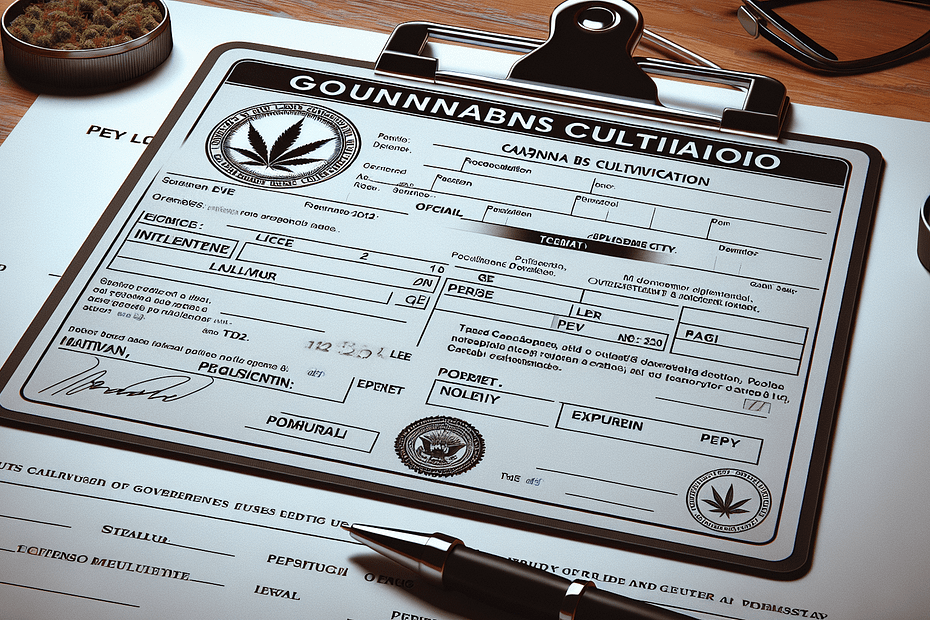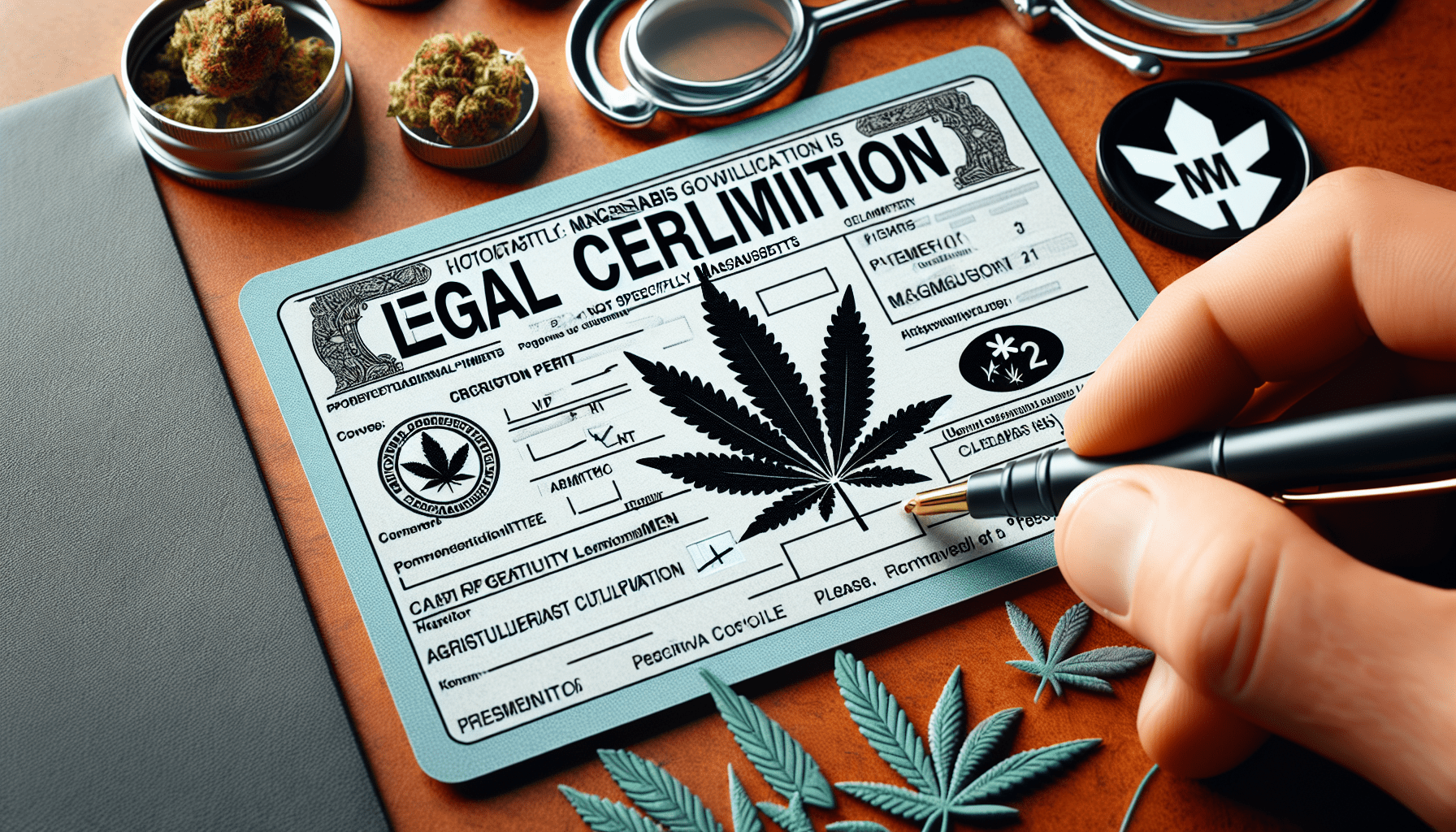Welcome to the world of cannabis cultivation in Massachusetts! In order to legally cultivate cannabis in the state, you will need to obtain the appropriate licenses. The Massachusetts Cannabis Control Commission oversees the licensing process, with different categories for various activities related to cannabis cultivation. Understanding the licensing requirements is crucial for ensuring compliance with state laws and regulations. Let’s take a closer look at the licenses you will need to embark on your cannabis cultivation journey in Massachusetts. What licenses are required for cannabis cultivation in Massachusetts?
So you’re interested in getting into the cannabis cultivation industry in Massachusetts, but you’re not sure where to start when it comes to getting the necessary licenses. Don’t worry, we’ve got you covered! In this article, we’ll break down the different licenses required for cannabis cultivation in Massachusetts, so you can get started on your journey to becoming a successful cultivator.
Cultivation License Types
In Massachusetts, there are several different types of licenses available for cannabis cultivation. Each license type comes with its own set of regulations and requirements, so it’s essential to understand the differences between them before applying. The most common license types for cultivation are:
- Tier 1 Cultivation License: This license is for small-scale cannabis cultivators who plan to grow up to 5,000 square feet of canopy.
- Tier 2 Cultivation License: This license is for medium-scale cannabis cultivators who plan to grow between 5,001 and 10,000 square feet of canopy.
- Tier 3 Cultivation License: This license is for large-scale cannabis cultivators who plan to grow more than 10,000 square feet of canopy.
Each license type has its own application process, fees, and requirements, so make sure to research which one is right for you before applying.
Choosing the Right License
When deciding which cultivation license to apply for, it’s essential to consider factors such as your budget, experience level, and business goals. A Tier 1 license may be more affordable and manageable for beginners, while a Tier 3 license could provide more significant returns but come with higher costs and requirements.
Think about how much cannabis you plan to cultivate, your target market, and your long-term goals when choosing the right license for your cultivation business.
Applying for a Cultivation License
Once you’ve decided on the type of cultivation license you want to apply for, it’s time to start the application process. Here’s a general overview of the steps involved in applying for a cultivation license in Massachusetts:
-
Complete the Application: Fill out the cultivation license application form provided by the Cannabis Control Commission (CCC) in Massachusetts. Make sure to provide all required information and documentation to avoid delays in processing.
-
Pay the Fees: Each cultivation license type comes with its own application fee, which must be paid when submitting your application. The fees vary depending on the license type, so make sure to check the current fee schedule on the CCC website.
-
Background Checks: As part of the application process, you and any other individuals involved in the cultivation operation will need to undergo background checks. This is to ensure that all applicants meet the eligibility requirements set by the CCC.
-
Site Plan Approval: Before you can start cultivation, the CCC will need to approve your cultivation site plan. Make sure to provide detailed information about your facility, security measures, and cultivation methods to expedite the approval process.
-
Inspections: Once your application is approved, the CCC will conduct on-site inspections of your cultivation facility to ensure compliance with state regulations. Be prepared to demonstrate that your operation meets all safety and security standards set by the CCC.
-
Final Approval: After completing all necessary steps and meeting all requirements, you will receive final approval for your cultivation license from the CCC. Congratulations, you’re now ready to start cultivating cannabis legally in Massachusetts!
Compliance Requirements
As a cannabis cultivator in Massachusetts, you must comply with various regulations and requirements set by the CCC to ensure the safety and quality of your products. Some of the key compliance requirements for cultivation license holders include:
-
Security Measures: Implementing robust security measures at your cultivation facility, such as surveillance cameras, access controls, and alarm systems, to prevent theft and unauthorized access.
-
Record-Keeping: Maintaining accurate records of your cultivation activities, including plant inventory, harvest data, and sales transactions, to ensure compliance with state regulations.
-
Testing and Quality Control: Testing all cannabis products for potency, purity, and contaminants at state-approved laboratories to ensure consumer safety and product quality.
-
Packaging and Labeling: Properly packaging and labeling all cannabis products with relevant information, such as THC content, dosage instructions, and warning labels, as required by state regulations.
By adhering to these compliance requirements, you can ensure that your cultivation operation operates legally and ethically in Massachusetts.
Renewing Your Cultivation License
Once you’ve obtained your cultivation license in Massachusetts, it’s essential to keep it up to date by renewing it annually. The renewal process typically involves submitting updated information about your cultivation operation, paying renewal fees, and undergoing inspections to ensure ongoing compliance with state regulations.
Make sure to mark your calendar and start the renewal process early to avoid any lapses in your cultivation license. Failure to renew your license on time could result in fines, penalties, or even the suspension of your cultivation operations.
Conclusion
Navigating the licensing process for cannabis cultivation in Massachusetts may seem daunting at first, but with the right information and guidance, you can successfully obtain the necessary licenses to start your cultivation business. By understanding the different license types, application processes, compliance requirements, and renewal procedures, you can lay the foundation for a successful and compliant cultivation operation in Massachusetts.
Remember, it’s essential to do your research, seek advice from industry professionals, and stay informed about changes in regulations to ensure that your cultivation business thrives in the evolving cannabis industry. Good luck on your journey to becoming a licensed cannabis cultivator in Massachusetts!





